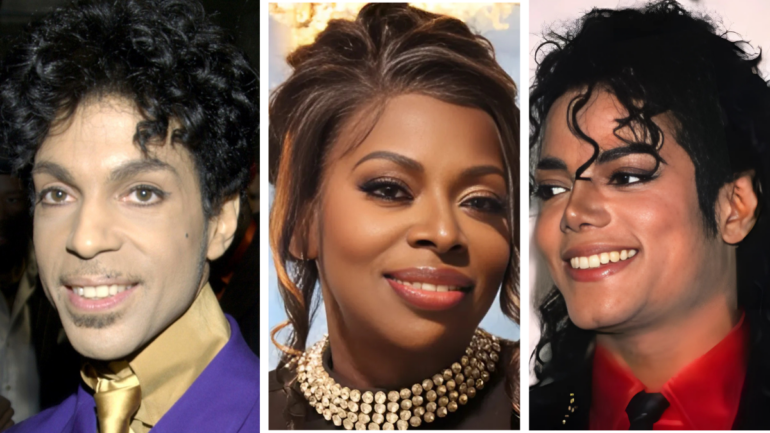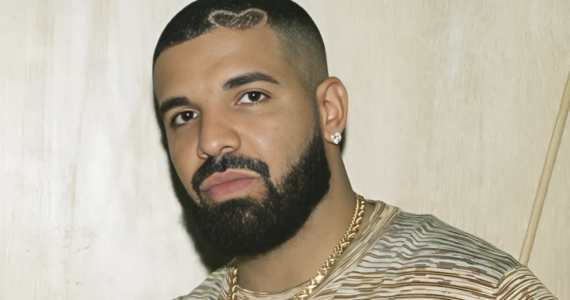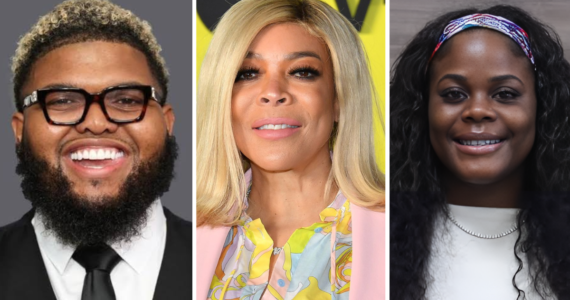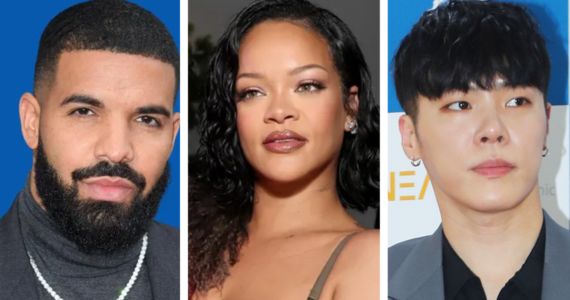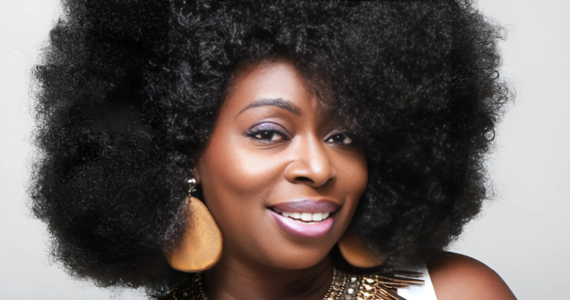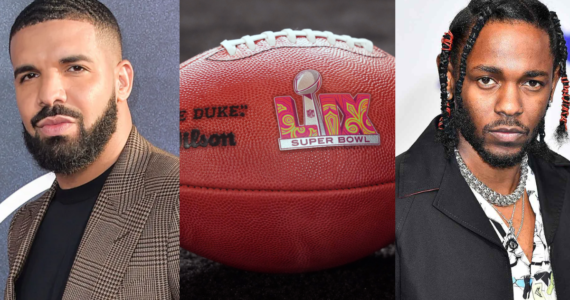The music industry is known for its glitz, glamour, and platinum plaques—but behind the lights and accolades, a darker question lingers: Is the industry harming its biggest stars in the name of profit?
Time and again, we’ve seen some of the most iconic artists—Michael Jackson, Prince, Angie Stone—fall under tragic and sometimes suspicious circumstances, especially during critical career moments. More recently, conversations around ownership, contracts, and power have reignited those whispers. So let’s examine the rumors, the receipts, and the reality.
🕴️ Michael Jackson: The King of Pop and the Fight for Control
Before Michael Jackson’s sudden death in 2009, he was deep in legal battles and public disputes over control of his music—and others’. Jackson famously acquired the Beatles’ publishing rights in the ’80s, later selling half to Sony, but he still had control of a significant music catalog, including his own. Rumors swirled that Jackson was planning to renegotiate his deal and regain full ownership of his masters.
He also became increasingly vocal about industry exploitation. “They’re trying to kill me,” he once said during a press conference. When Jackson died just weeks before his comeback tour This Is It, many fans couldn’t help but ask: Who stood to gain the most from his untimely passing?
☔ Prince: The Artist Who Fought for His Masters
Prince was no stranger to war with the industry. In the ’90s, he famously changed his name to a symbol in protest of Warner Bros., who owned the rights to his master recordings. He even wrote the word “slave” on his face during performances to make a statement.
Prince eventually regained control of his masters—but not long after, in 2016, he died of a fentanyl overdose in an elevator at his estate. His death raised more questions than answers. Many noted that he had just begun to release music independently and was planning a memoir. The sudden loss felt too eerily timed for fans who had followed his journey of resistance against label control.
💼 Diddy: The Mogul Under Fire
Sean “Diddy” Combs has long been praised for building an empire with Bad Boy Records and launching the careers of major acts like The Notorious B.I.G., Faith Evans, and Mase. But now, the industry is watching as decades-old whispers are turning into headlines.
In 2024 and 2025, Diddy became the center of numerous lawsuits and federal investigations, including a highly publicized raid on his homes in Los Angeles and Miami. Accusations have ranged from sexual misconduct to human trafficking—all denied by Combs—but the sudden surge of lawsuits and resurfacing rumors have left the industry questioning whether he’s being taken down for what he knows or controls.
Could his vast music catalog, business interests, or insider knowledge make him a target? Some fans think the allegations are part of a takedown strategy; others argue it’s simply justice catching up. But in the court of public opinion, many are wondering: Who benefits if Diddy is removed from the board?
🎤 Angie Stone: A Legacy Underrated, But Still Exploited?
In what feels like another eerie example of artists speaking out before tragedy strikes, a resurfaced clip from December 2024 shows Angie Stone calling out Universal Music Group (UMG) for allegedly mishandling her royalties for years.
“My publishing, pretty much my royalties, my mechanicals… they’ve all pretty much been stolen,” she says in the clip. “Come to find out Universal Music [Group] has been receiving all of my royalties, all my mechanicals.”
Stone goes on to claim that many of her songs weren’t even properly registered—a haunting allegation that speaks to a long-standing pattern of industry negligence, especially when it comes to Black women in soul and R&B.
Then, just three months later, fans were devastated to learn of her passing.
Stone died on the morning of March 1, 2025, following a car crash in Montgomery, Alabama. She had just performed in Mobile and was headed back to Atlanta with a van full of musicians—eight passengers in total—but she was the only one who didn’t survive, according to her label SRG/ILS. She was 63.
For fans of neo-soul, the news was more than heartbreaking—it felt suspicious. How could a woman finally finding the courage to publicly fight for her royalties, only to be gone weeks later, be a coincidence?
Was it just a tragic accident? Or another example of the music industry taking far more than it gives back?
🔥 Drake: Modern Fame, Ancient Industry Games
Now let’s talk about Drake. While very much alive and thriving, he’s currently in a battle that echoes those of the legends before him. Drake has hinted at disputes over control, contracts, and label interference—particularly with his recent lawsuit against Universal Music Group after the Kendrick Lamar beef took a dark turn. He’s accused UMG of helping to push a narrative that defames him, questioning whether the label is truly behind him or working against him for strategic reasons.
If Drake—arguably one of the most powerful names in music today—can publicly question the motives of his own label, what does that say about the state of the industry in 2025?
🤔 What’s Really Going On?
None of this is to say the industry is behind every tragedy or controversy. But when patterns repeat—when artists face downfall at the height of creative or financial renegotiations, when master ownership becomes a battleground, and when careers are derailed without clear reason—it’s fair to ask the question: Who profits when artists suffer?
We’ve seen enough to know the music industry doesn’t just thrive off talent—it thrives off control.
What do you think? Is it all conspiracy—or is there truth in the patterns we’re seeing? Drop your thoughts in the comments and let’s unpack it together.
🎶 Follow MEFeater on Twitter, Instagram, Facebook, and Pinterest for more culture deep-dives and updates.


